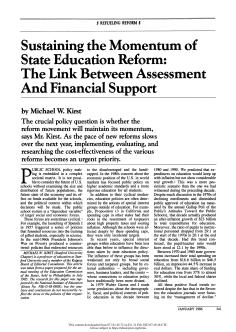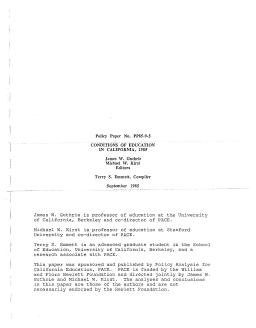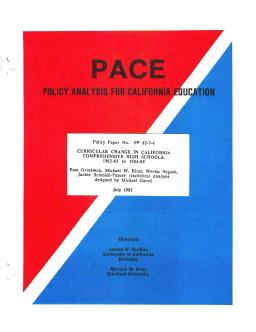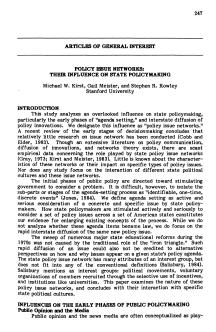Michael W. Kirst

Michael W. Kirst is professor emeritus of education and business administration at Stanford University as well as co-founder and current advisor to Policy Analysis for California Education (PACE). He has been the chief education advisor to former California Governor Jerry Brown, who four times appointed Kirst president of the California State Board of Education. In this position, Kirst was instrumental in reshaping education policy and finance in California, overseeing the new academic standards and assessments in math and English language arts, the new science standards, and the Local Control Funding Formula (LCFF). Prior to joining Stanford University, Kirst held several key leadership positions within the federal government, including staff director for the U.S. Senate Subcommittee on Manpower, Employment, and Poverty, and director of program planning and evaluation for the Bureau of Elementary and Secondary Education in the U.S. Department of Education. He was vice president of the American Educational Research Association and a commissioner of the Education Commission of the States; a fellow at the Stanford Center for Advanced Study in Behavioral Sciences and has been a member of the National Academy of Education since 1979. Kirst received his PhD in political economy and government from Harvard University.
updated 2025







